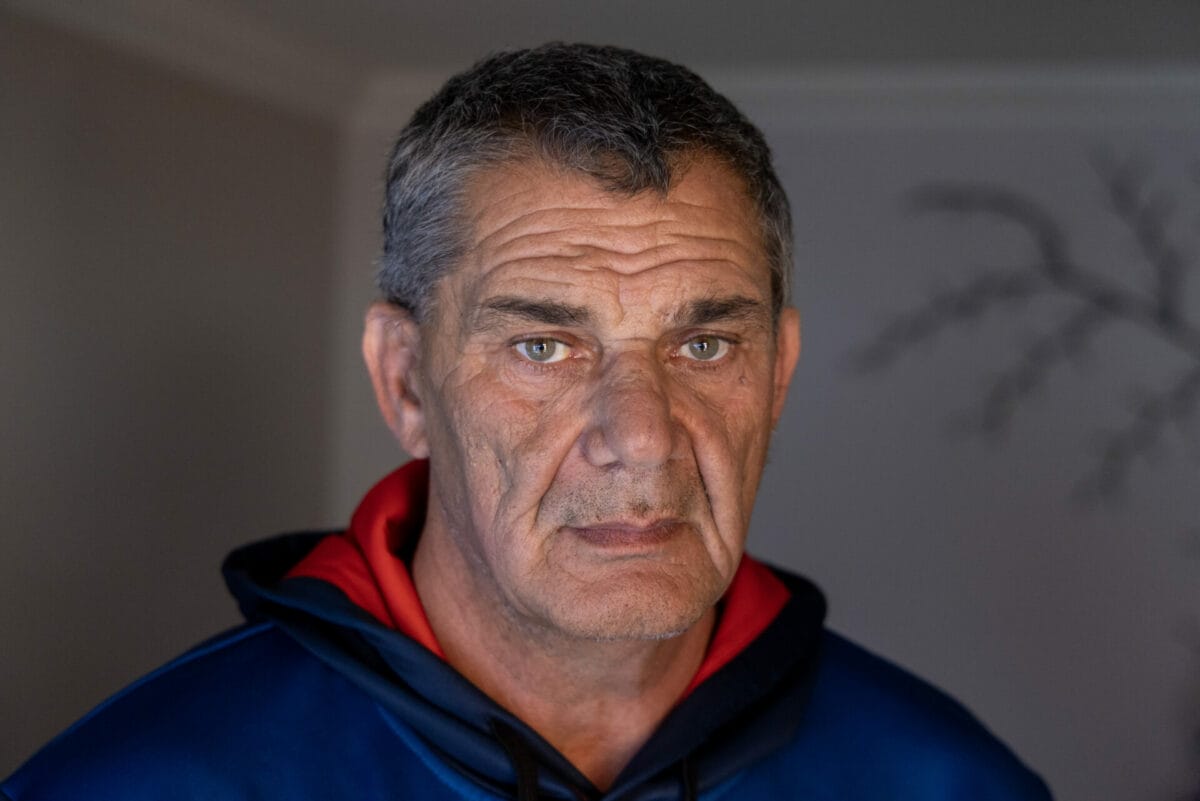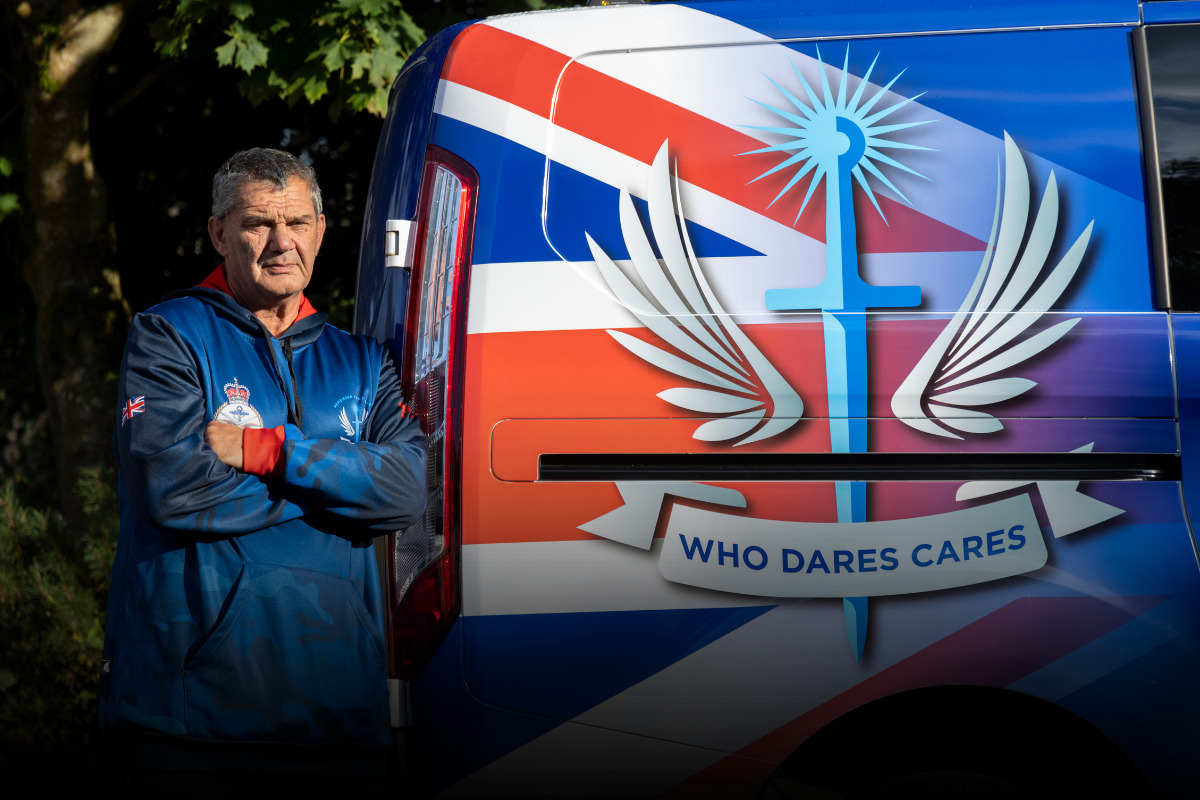Former military servicemen and women across Scotland suffering from combat related trauma are falling between the cracks of the criminal justice system, it has been claimed.
Community payback officer Calum MacLeod – a former soldier who served in Northern Ireland and Iraq – said former armed forces personnel serving non-custodial sentences are not receiving support for untreated mental issues related to their military service.
MacLeod — heads Who Dares Cares, a support group for former military and emergency services personnel with post-traumatic stress disorder (PTSD) — claimed there is a “growing forgotten army” of former military people struggling after “falling foul” of the justice system.
In response, he has started a scheme called About Turn to help struggling veterans who have received a non-custodial sentence.
Currently, inmates entering Scottish prisons are asked whether they are ex-service personnel, and they are offered support from Sacro and the armed forces charity, SSAFA. In 2019, 255 prisoners had disclosed their veteran status – 3.1 per cent of the total Scottish prison population.
There were 243 prisoners in Scottish jails in July this year who served in the armed forces, according to Scottish Prison Service figures.
But similar figures have never been collated for those given sentences such as a community payback order, supervision or tagging. People with non-custodial sentences do not get the support offered to those in prison.

MacLeod claimed this has left veterans struggling to get specialist help. He said: “This is a serious failing. If the armed forces covenant is to actually mean anything at all then we have to at least give these people a chance.
“The Ministry of Defence (MoD) does the bare minimum and leaves a myriad of charities to pick up the slack. These people are in the system but are not identified as veterans even though the root cause of their offending is often their military service.
MacLeod added: “That’s a disgrace. I see the fallout of this every day. How can we begin to assess the extent of the problem and how many people need help if we don’t even collect the data?”
We asked the Crown Office and the Scottish Government how many ex-military personnel were serving non-custodial sentences.
The Crown said it does not hold employment details, past or present, or markers on the system indicating that an accused has served in the armed forces.
It was unable to provide any information regarding the number of armed forces veterans serving a non-custodial sentence in Scotland.
The Scottish Government said it held no data on the number of veterans in this part of the justice system and referred us to Sacro.
But Sacro, which provides criminal justice services to help reduce offending in communities, also held no data.
The British Armed Forces Federation said: “Too often this kind of initiative is seen as providing an easy excuse for criminal behaviour.
“But in reality it can contribute to a better outcome not just for the individual and their family but for society.
“The Armed Forces Charity SSAFA has caseworkers to work with people serving community sentences and Police Scotland have Veterans Champions at divisional level but we agree that there is more to be done.
“People given community sentences should be asked about veteran status on a voluntary basis and statistics should be available.”
The UK Government said: “We are committed to ensuring that our veterans are supported, whatever their individual needs. Whilst the number of veterans in the criminal justice system is relatively small, some do require specific support.
“We urge any veteran requiring assistance to access the support available including statutory services and the Veterans’ Gateway.”
Rab’s story
MacLeod has started a scheme called About Turn to help struggling veterans who have received a non-custodial sentence.
Those helped so far include former soldier ‘Rab’ (a pseudonym to protect his identity) who served with special forces troops in Afghanistan and Iraq, before leaving the army and getting into trouble.
Rab – who served 10 years in the Royal Artillery – has complex PTSD – a condition caused when a person experiences repeated trauma over a long time. He said his struggles came to a head when he became violent after remembering fallen comrades on Remembrance Day.
“After a tough tour, I came home and left military service. I became aggressive, suffering from flashbacks and nightmares. I often found solace in alcohol,” Rab said.
“In my head I was coping and doing well to hide it but with drink and my aggression going untreated, I started on a slippery road downhill.”
This mental trauma eventually led to Rab getting involved in a violent altercation on Remembrance Day a few years ago. He said he hurt a man “quite badly” and was arrested and faced prison.
“This was a massive wakeup call. I needed help so I started getting therapy with Combat Stress. I also had a baby on the way so I really needed to sort my life out. At court I was lucky to get community service.”
Even after completing his treatment, Rab did not feel as though his life was on track. But then he met MacLeod and began to turn his life around. He said: “I met Calum Macleod who was also a veteran and took me under his wing.
“He told me about About Turn and I thought it was a great idea. As a veteran I wouldn’t speak to a civilian – what’s the point? They will never be able to comprehend the things we go through as soldiers.
“So having Calum there as a fellow veteran made all the difference. To veterans, the comradeship is important to us. It’s a sense of belonging. The programme is a really good and positive thing for veterans who have fallen off the wagon and ended up within the criminal justice system.
“Calum took me out on Remembrance day for a walk, a talk and a brew which was really good.
“I was around like-minded folk and away from the crowds and able to just chat with people that had a level of understanding about things I have been through.
“Remembrance day is a really hard day for me and this made it a lot easier. Dealing with alcohol and drug misuse within the About Turn programme is essential.
“It’s a big problem with guys turning to drink to get a sleep or to trying to forget. I stopped drinking myself after the incident and many need the help to do this.
“Physical exercise is also part of the programme. A bit of keep fit is good for not only physical health but mental health as well.
“Keeping fit with others with a military background again is a positive. You are always a soldier even when you are no longer in uniform.
“The organisers also show the veterans the basics of cooking as some have maybe only ever cooked ration packs.
“It is all about enabling them to be able to look after themselves better. There is also help with employment as most of the guys would have lost their sense of self-worth.”

The About Turn scheme – named after a military marching command to turn to face the opposite direction – seeks to give veterans life skills for civvy street and stop them falling foul of the law again.
MacLeod said: “They just need a chance. I joined the army from school. I didn’t know what a job centre was or what to do when I came out.
“Most of all the programme offers stability and structure – things we as soldiers thrive on.
“When I was doing my community service, it was better having a veteran supervisor. I always had someone there I could talk to and was able to discuss issues in confidence.
“I’m coming to the end of my community service now. Having a veteran there made it easier for me and I know I will always have support in the future.
“We have done wrong so yes, there needs to be a punishment but there also needs to be rehabilitation. There needs to be light at the end of the tunnel.”
MacLeod believes that Scotland’s justice system needs to be tightened up to stop Rab and other former military men and women being dragged further into crime.
“Rab has been a success story. He is striving hard to turn things around but there are many more people out there struggling.
“We will feel the ramifications of Iraq, Afghanistan and other conflicts for years to come. I was appalled that no one can say how many veterans are currently serving sentences other than custodial ones within the criminal justice service.
“It would be great if we could get About Turn rolled out across the country to help these guys. These people are guilty as charged of the crimes they have committed, but many offences are likely attributable to their service.
“Most veterans thrive when they leave the forces but some do not. They perhaps have issues which have been left unidentified on leaving service.
“We have a duty of care to these individuals. Scotland could be one of the best places in the world for veterans if we start sorting out things like this now.”
Images: Robert Perry














